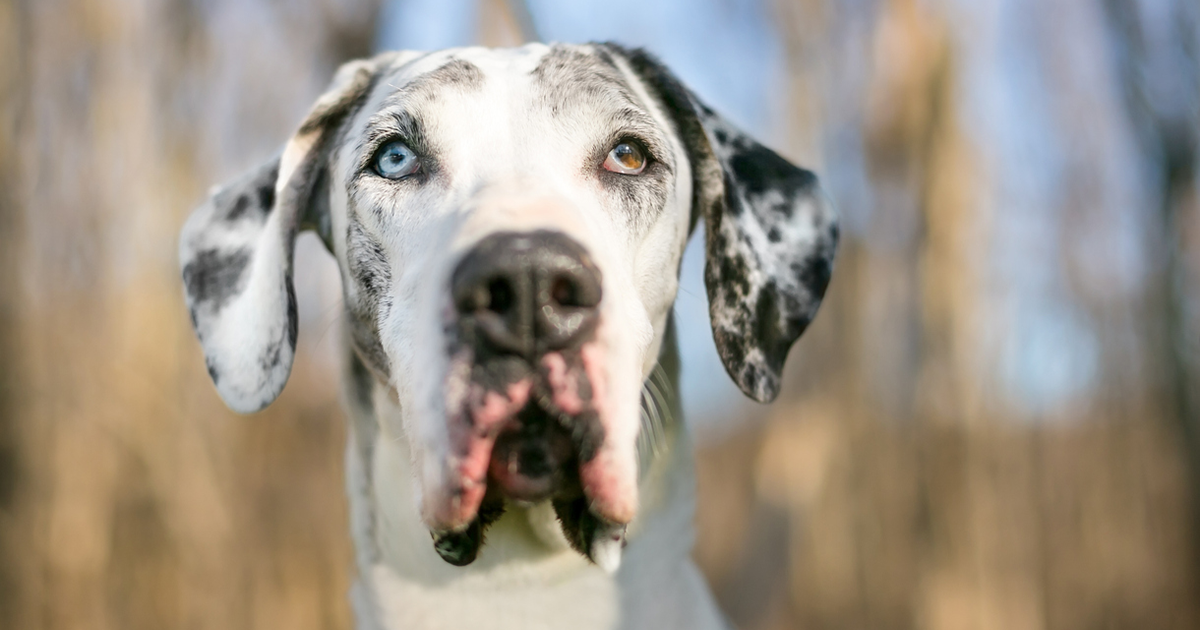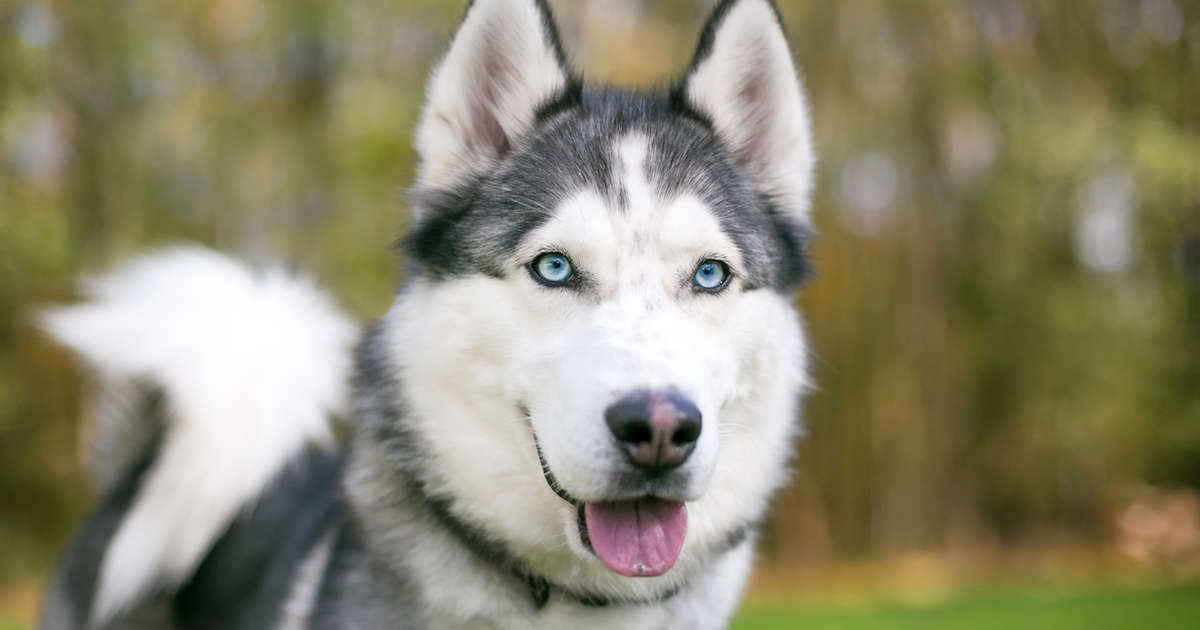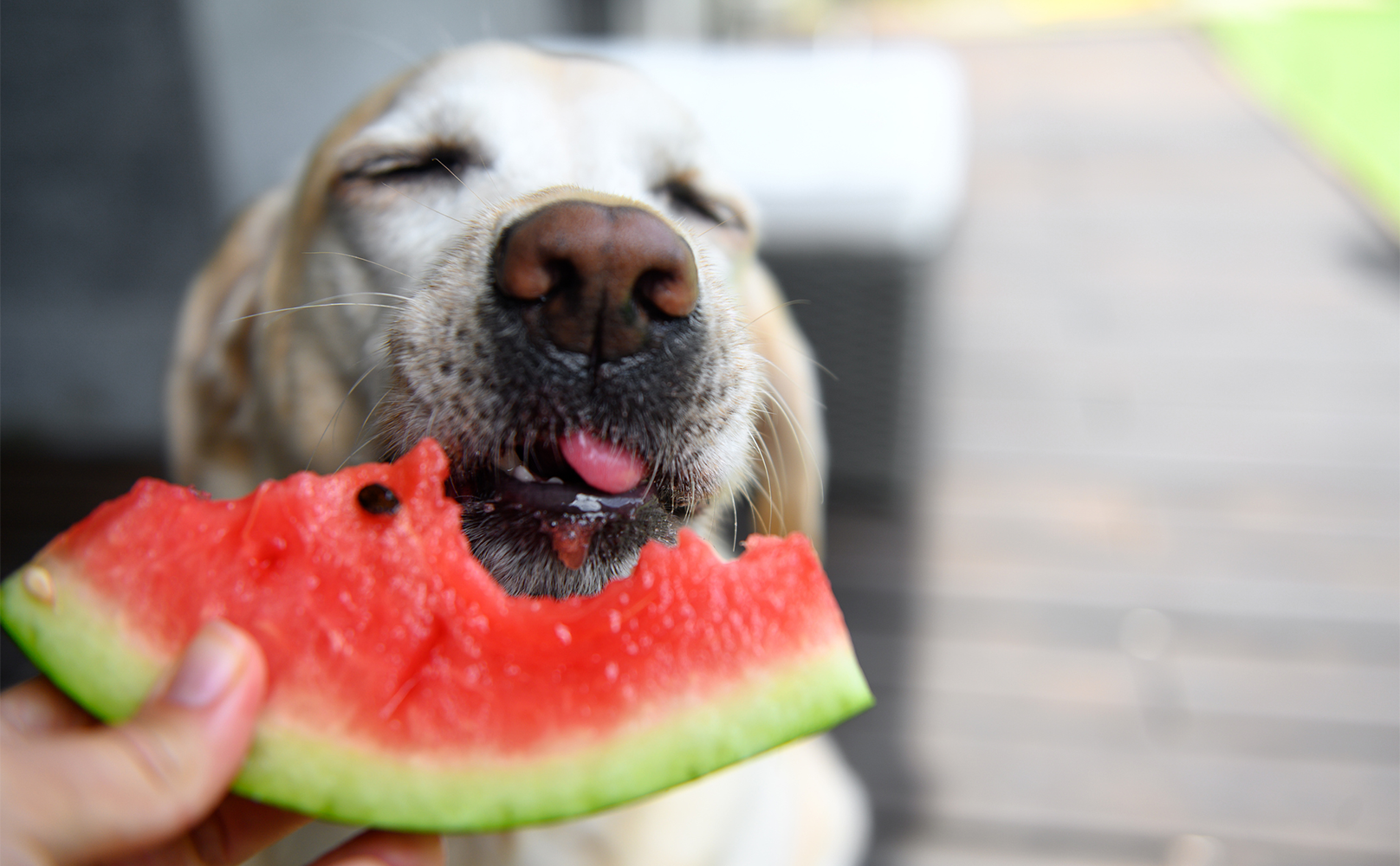Welcome to the BarkPost guide to dog breeds where we belly flop straight into the depths of dog breed origin, evolution, and purpose. Follow along each week as we publish new guides that highlight the strangest, most interesting, and most surprising stuff about these creatures who have been our best buds the last 30,000 years.
Intro / Overview
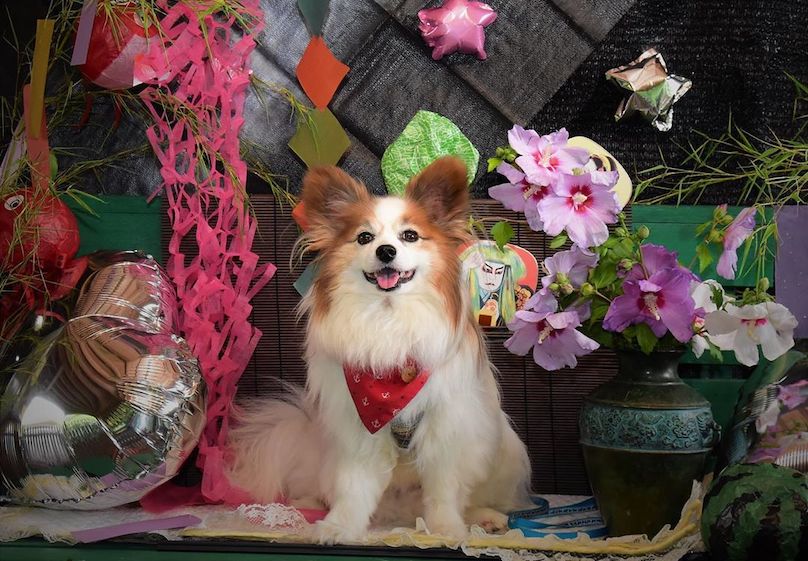

(All dogs are individuals, which means any single dog from any breed can be any number of ways, both good and not so good. Keep that in mind as we discuss breed generalities!)
You’ve probably seen them while taking in some 13th century paintings. The ears may be dropped, but you’d recognize those dark round eyes with thin black rims, that thin, tapered nose, the long fine hair. The beauty of the Papillon does not begin and end with those butterfly-resembling upward pointed ears, for which they were named. These happy and curious Spaniel pups have been wonderful companions to humans for centuries.
Lively, without being high strung or nervous, Papillons bring a spark to daily life with their enthusiasm and intelligence. Always up for whatever’s next, these toy-sized pups are ready to go anywhere and do anything, as long as it’s with you. Tired of going it alone? Perhaps a Papillon is the pup for you!
Also Known As…
Butterfly Dog. Squirrel Dog. Continental Toy Spaniel. Phalène (dropped ears).
Origins


The Papillon descends from the European Toy Spaniel, who, as early as the 16th century, appeared in paintings of the royal courts of Europe. These pups were carted all over France, Italy, and Spain, and were a favorite companion of court ladies. The early toy spaniels had dropped ears, then known as “Titian spaniels” but today are known as Phalène (French for “moth”). Though the breed has a lot of famous French admirers, including Madame de Pompadour, Louis XIV, and Marie Antoinette, the early breeders in Spain and Italy are more to thank for the development of today’s Papillon.
Size


The average height for Papillons is 8 – 11 inches.
Weight Range
The average weight for Papillons is 5 – 10 pounds.
Personality


Papillons are friendly, happy, self-assured pups who like to take charge. Neither shy nor aggressive, these highly trainable spaniels are eager to please their humans. In fact, Papillons form a strong bond with their people and do not like to be separated from them. In other words, they are not the type to be relegated to the corner as family life goes on all around them. They want to be part of your pack.
Intelligence / Trainability
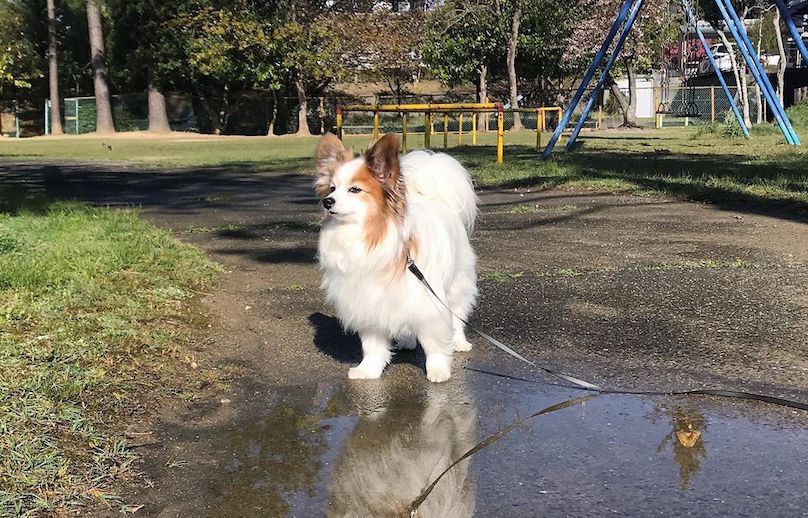

Highly intelligent with lots of energy, Papillons excel at agility, rally obedience, and obedience training. In fact, their active minds and bodies require plenty of mental stimulation in order to avoid boredom and the negative behaviors that can come with it. Socialization, early and often, will help bring out all of the wonderful companion dog qualities that Paps are known and loved for.
Ideal Environment
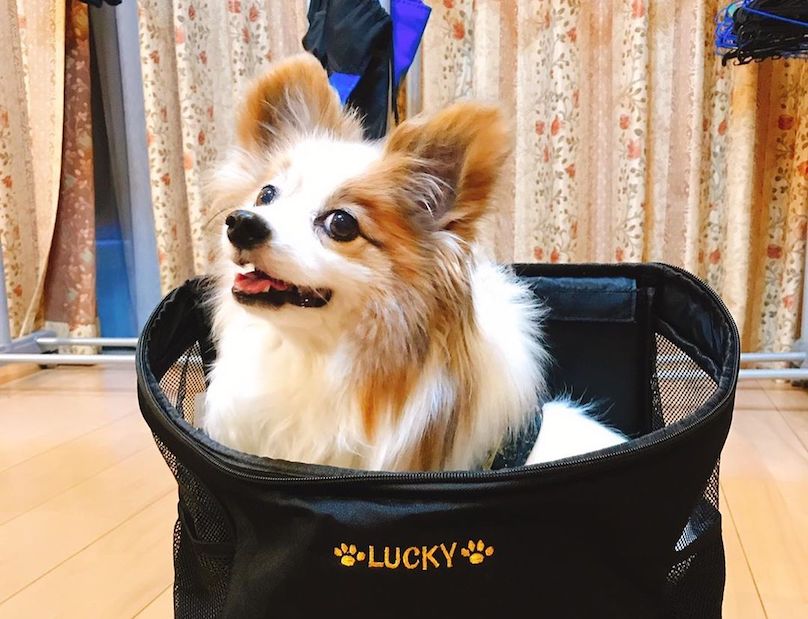

These toy-sized pups will do just fine in an apartment, but they’ll also energetically use up any space you give them, including a fenced yard. Papillons are true companion dogs and should only live indoors with their family.
Good For Families And Kids?
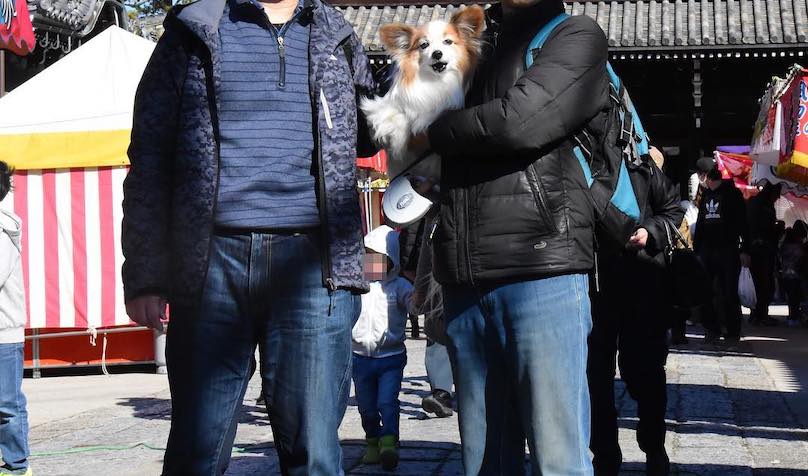

These great companion dogs have the desire and energy to keep up with busy families, but can be highly successful in the chill and cuddle department as well. Papillons form a strong bond with their people (and other pets!) and are at their best when included and engaged with.
Although Papillons love children, their small size makes the susceptible to injury if not handled properly or treated roughly. Although they are not an aggressive breed, they will defend themselves if they are being mistreated. It is always best to supervise any interaction between small children and dogs to ensure that both act respectably towards each other.
Average Lifespan
The average life expectancy for Papillons is 14 – 16 years.
Health
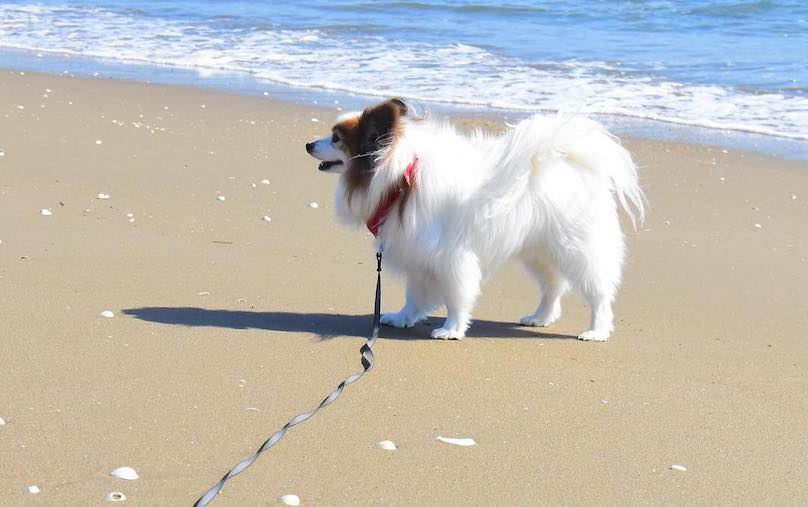

A generally healthy breed, there are a few issues that you should be aware of and discuss with your veterinarian, including Patellar Luxation, Hypoglycemia, and Progressive Retinal Atrophy, a degenerative eye disorder.
Energy
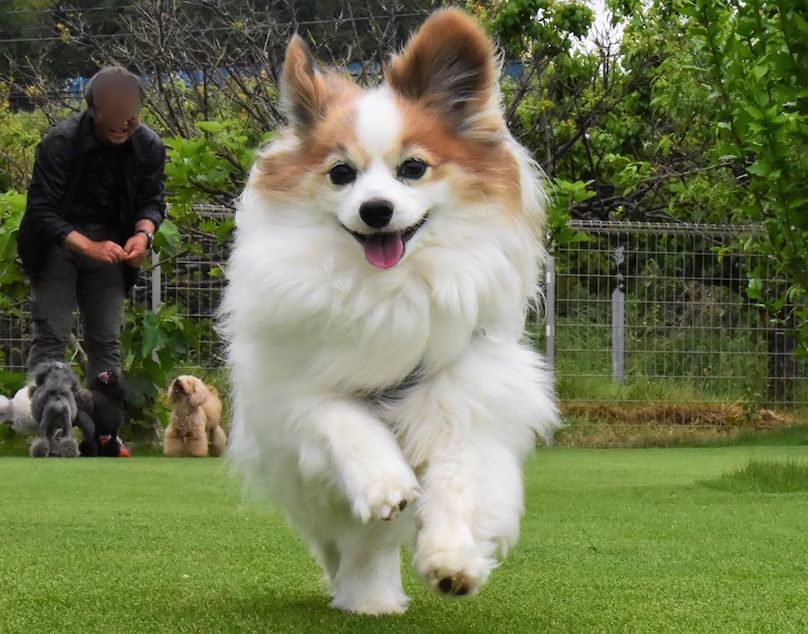

These active “doers” love to play, and a good amount of their daily exercise needs can be met with some rousing and stimulating indoor or outdoor games. True exercise, such as a walk or a good run in a fenced area, should happen daily. Ture to their Spaniel heritage, Paps love to chase after squirrels, chipmunks, and bugs, however, with no concept of their small size, they’ll also chase after larger animals including bigger dogs, so you may need to reign them in sometimes for their own safety.
Friendly With… (Dogs, Strangers, Cats, Other Pets?)
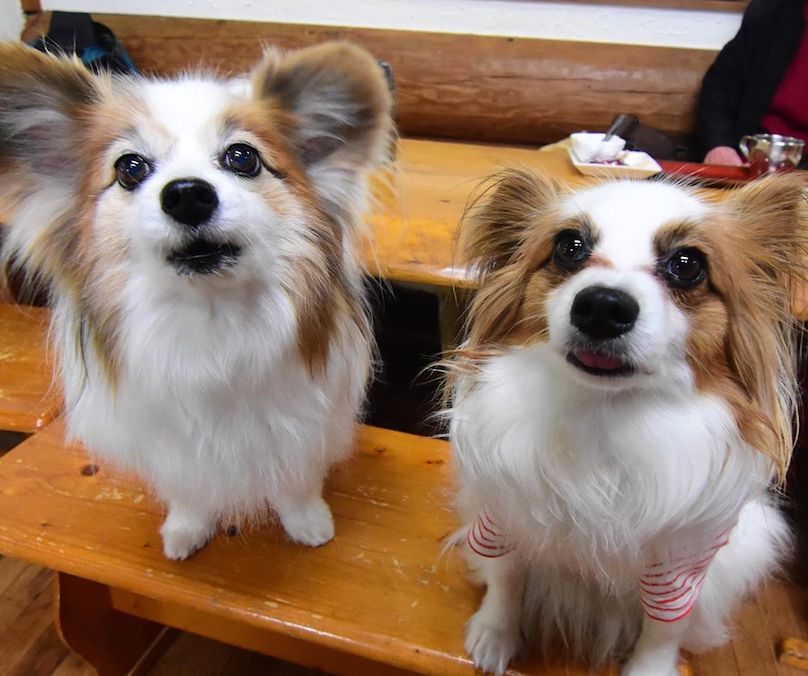

Papillons are usually reserved around strangers but can warm up quickly and make new friends. If the socialized, preferably as early as possible, they should get along great with other pets, though interactions should be avoided with larger dogs that play rough, or cats that like to use their claws, as to avoid injury. Undeterred by their size, Papillons have no problem bossing around dogs much bigger than they are, which can be humorous but also problematic.
Coat & Grooming


Those beautiful straight, long, fine coats are single layered, so there’s no undercoat to shed or brush out. Although silky and flowing, the Papillon’s hair is not prone to matting and can be kept up with a quick brushing once or twice a week to help distribute natural skin oils.
Small dogs, especially, are prone to dental issues, so be sure to brush their teeth at least 2 – 3 times a week. You’ll also want to trim their nails once you notice a clicking sound when they walk, usually 2 – 3 times monthly.
Quirks
Sniff. Sniff. Papillons have no doggy odor!
Toys Papillons Would Like Best
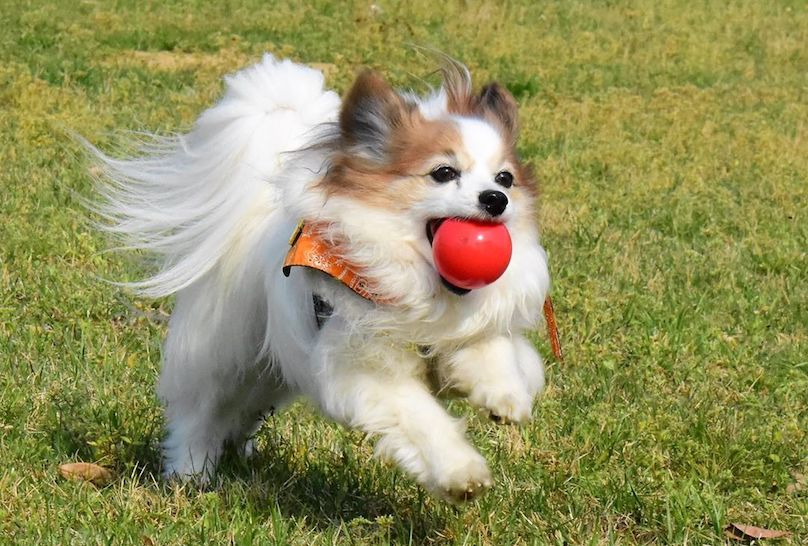

Papillons are great at learning fetch, so balls are always a hit, but plenty of toss and tug games can be played with small plush toys as well! Remember, these are highly intelligent pups who need mental stimulation, so puzzle toys are also good to have on hand.
Check out our “What Are The Best Toys For Small Dogs?” and “What Are The Best Fetch Toys For Small Dogs?” posts for more recommendations.
Recommended Diet Or Supplements
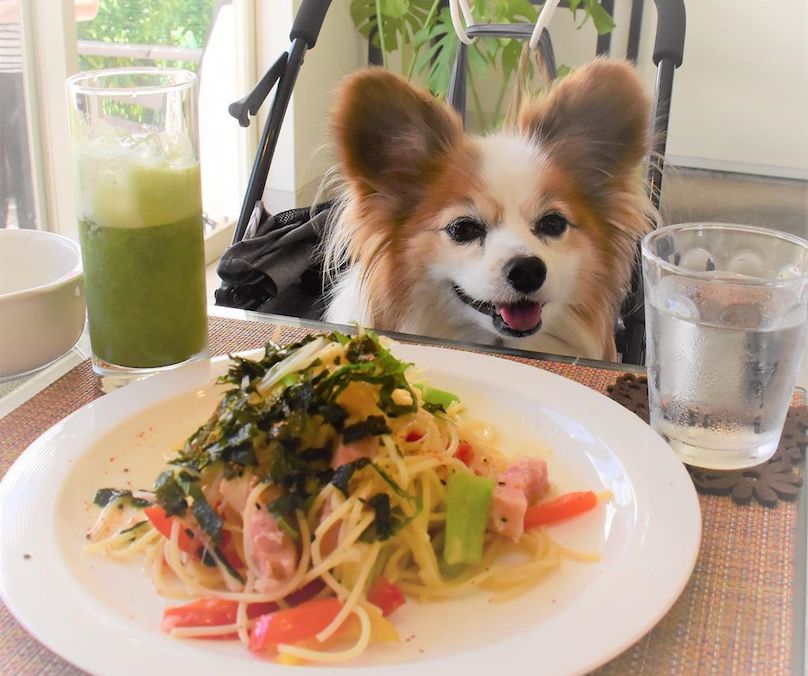

Feeding your Papillon (or any dog) the freshest whole food diet you can afford (trying to eliminate fillers, grains, or inflammatory proteins such as chicken), can go a long way to decrease health issues and increase longevity.
Coconut oil can also help to prevent inflammation, and can help protect the nervous system, while locally-sourced, season-appropriate honey can help with allergies.
Fish Oil Skin & Coat Supplement
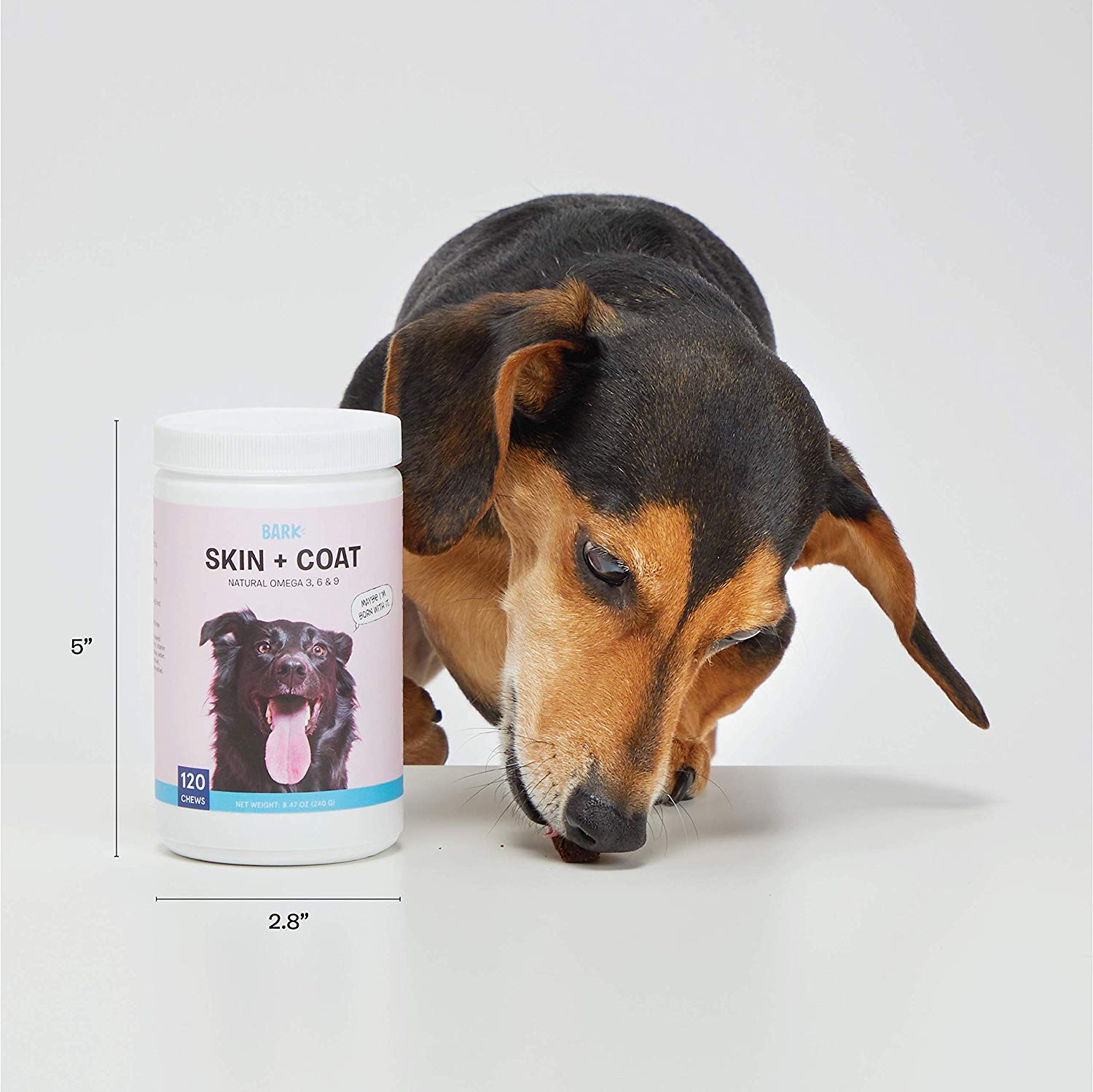

These delicious, vet-formulated chews are made with all-natural ingredients including Omega 3, 6, 9, and Vitamin E. They are designed to support immune health, provide relief from itchy allergic skin, and promote a healthy coat. ($19.99)
Full-Spectrum Hemp Oil
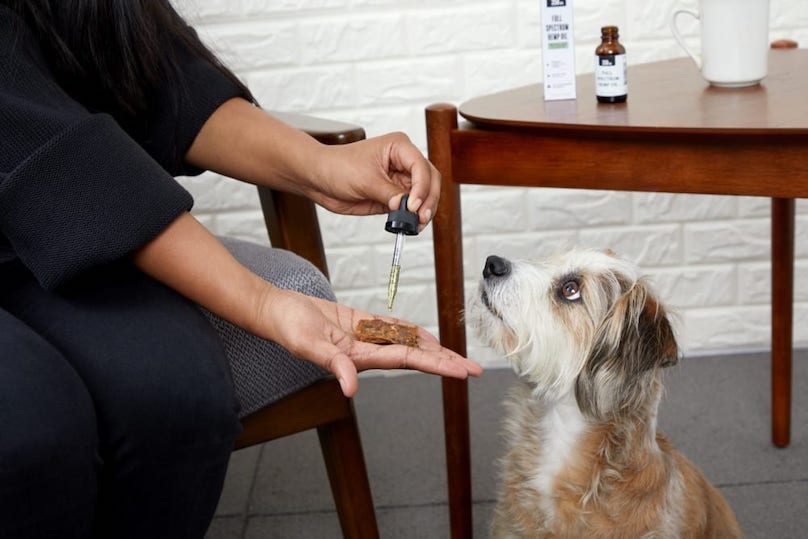

BARK’s Full Spectrum Hemp Oil is made of organically grown whole plants, grown in Colorado, and is non-psychoactive. It comes in 100mg, 250mg, and 500mg varieties, and can help with pet anxiety and pain relief. ($17.99-22.99.)
Recommended Products
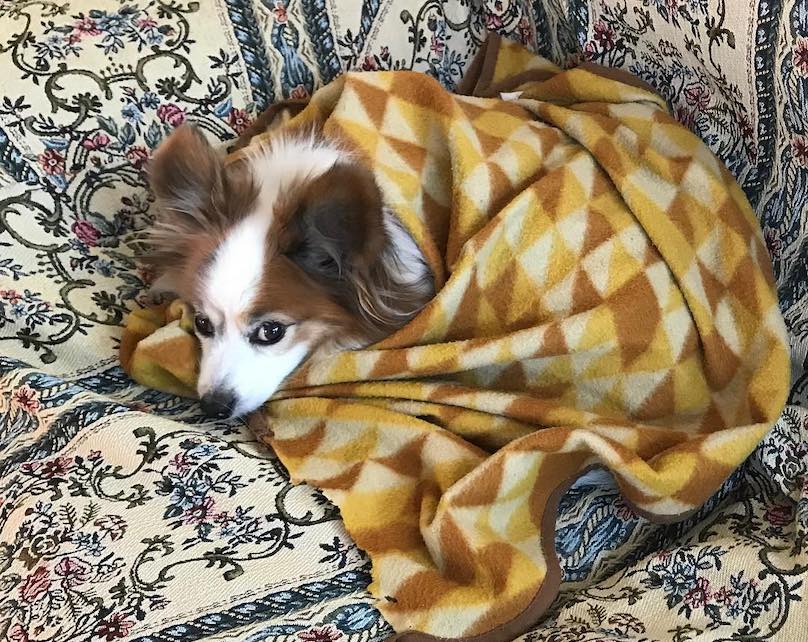

For Papillons with joint issues – or any dog who just loves to lie around! – a nice comfortable bed with orthopedic support is probably a good idea.
Orthopedic Ultra Plush Memory Foam Dog Bed


This ultra plush orthopedic dog bed provides support for even the most active of dogs! The combination ergonomic memory foam and gel foam relieves pressure points, and helps ease body aches caused by hip dysplasia, arthritis and other orthopedic issues. It offers the best therapeutic support for your Papillon. ($27.99-64.99.)
Notable Rescues To Find The Papillon Of Your Dreams
- Papillon 911 Rescue and Adoption, Inc. is a charitable organization created to rescue Papillons and Papillon mixes nationwide. They supply food, shelter, and loving attention, along with medical and dental care, to all Papillons in need. While they will rescue and shelter any Papillon or Papillon mix abandoned in a kill shelter, or accept one from an own who is unable to care for their dog, the group’s focus is on rescuing Papillons from the horror of puppy mills.
- Papillon Haven Rescue is made up of volunteers living across the US, drawn together for the purpose of rescuing Papillons in need. With the ultimate goal being the welfare and protection of Papillons, the group works towards the development of a network of rescuers, transporters, foster homes, and liaisons with animal shelters and other rescue groups in order to provide information and assistance.
- Papillon Pals Rescue is a 501(c)(3) not for profit charity organization, committed to saving and enhancing the lives of abandoned, abused and neglected small and toy breed dogs. It’s volunteers, along with peer organizations, work to rescue, rehabilitate, and relocate dogs into homes with people who will love them the rest of their lives.
- Adoptable Papillons on Petfinder
Notable Instagram Papillons
@papillon_lucky
Lucky is a very lucky Papillon living it up in Japan.
@papillontails
Follow the tales of these two AKC Papillons, Conan the Barkbarian (1 year old) and Lara the Treat Raider (11 years old). If you can find a cuter pair of Papi pups, we’re all ears!
@yoko_papi
Oops, we spoke too soon. Here comes another dynamic duo! The beauty of Hyogo, Japan can only be outshined by Mocha (11 years old) and Aroa (10 years old)!
@luna_the_pap
Beautiful Luna is a 3-year-old Paperanian rescue (a Papillon/Pomeranian mix!) who loves food, cuddles, and attention. And we love watching her get all those things.
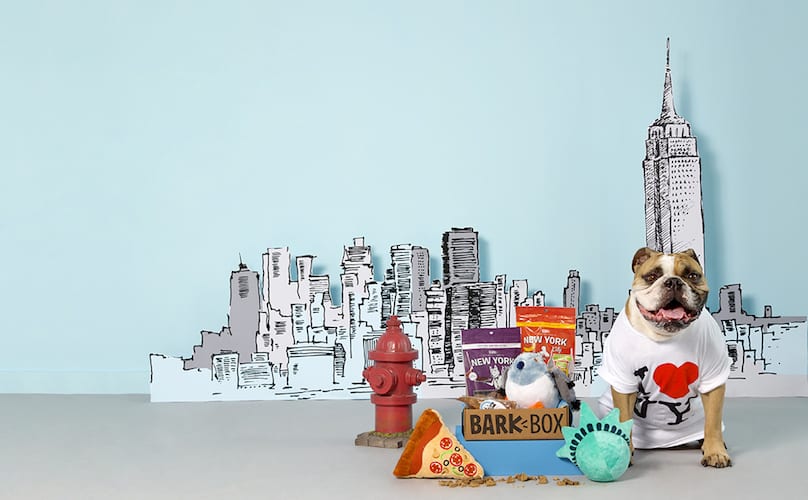

***Looking for a gift to blow your pup’s mind? Spoil them with BarkBox! Every month BarkBox delivers 2 original toys, designed in-house, 2 full bags of all-natural treats, and a chew. Sign up here and receive a free extra toy every month. <– This deal is worth up to $120 in value if you sign up for a 12-month subscription! 🙂
Featured image via Papillon_Lucky/Instagram
Want More Breed Guides Like This?
Japanese Spitz Breed Information Guide
Shiba Inu Breed Information Guide


